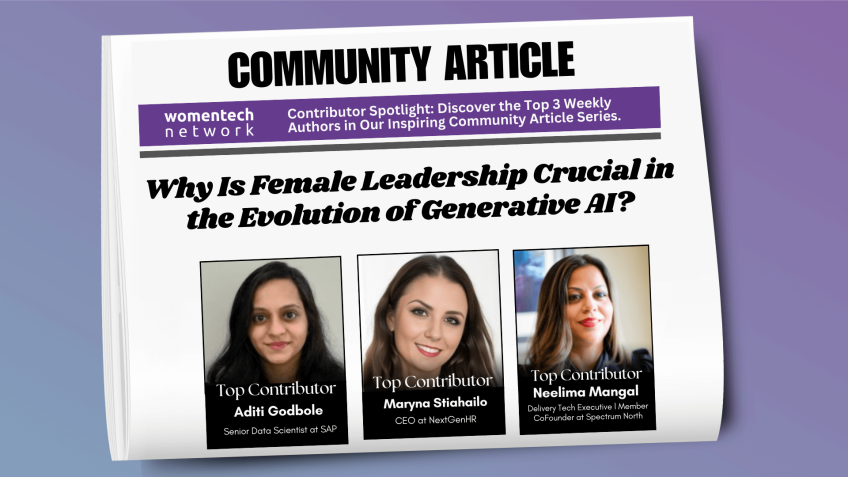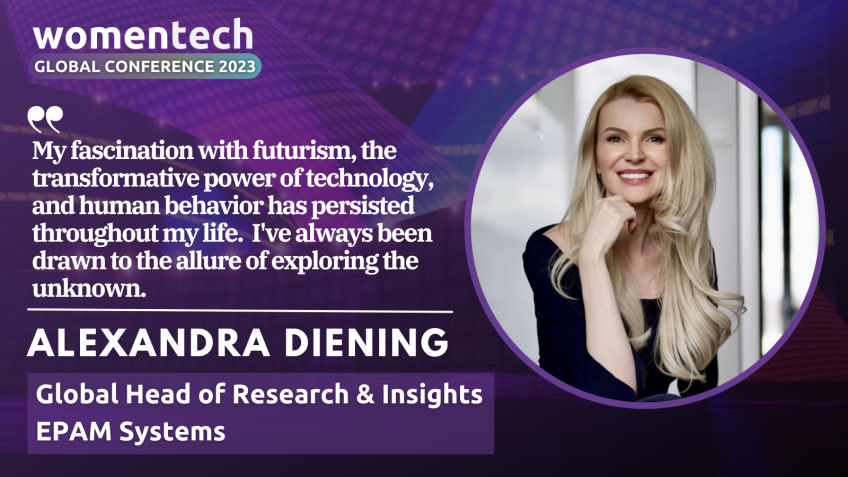
Artificial intelligence (AI) is moving at an incredible speed. One example of this is a subset of AI, generative AI, which is experiencing incredible innovations that could completely change how content is created. With more investment and research going into generative AI, there are some major trends that suggest the future of this technology is female.
This is an AI landscape with a more balanced representation of women in AI systems by women-led teams to reduce gender bias, generative models to empower women, and more. So, if you’re interested in using AI, keep an eye on these AI generative models. It will help anyone or any organization that is interested.

AI Developed by Diverse Teams Sees Better Gender Performance
There are many studies that show that AI systems developed by gender-diverse teams are fairer and more accurate for gender. The reason for this is that we are bringing a more diverse set of perspectives to the development process and catching potential issues or biases.
In 2021, a team made up equally of male and female developers at the University of Massachusetts created a state-of-the-art natural language model called Delphi. Compared to models such as GPT-3, Delphi showed 91% less evidence of associating stereotypical gender characteristics when analyzed with word embedding association tests.
The lead researcher, Emma Tosch, made the apt observation: “The best way to reduce gender bias in AI is to have women on the development team.” Better AI comes from diverse and inclusive teams. The social impact focus of this work means that the benefits of advanced generative systems don’t just accrue to a small set of privileged users, but rather steer them towards more equitable outcomes.
Increasing Openness and Inclusivity
The datasets and algorithms of most of the big tech companies working on generative AI are private and proprietary. However, a growing number of generative AI development services initiatives aim to promote openness and inclusivity instead:
Non-profit and academic datasets made publicly available
Open-source generative models anyone can use
Startups building inclusive creator communities
Platforms giving underrepresented artists control over their digital likeness
The goal of this drive towards openness is to democratize access to generative technology and to prevent the concentration of power and value. That's important because it gives women and other groups who have been historically excluded from tech development a direct role in shaping the future of the field.

Generative Models Developed by Women's Organizations
In addition to contributing to models from major AI labs like OpenAI, women researchers are also creating and leading the development of new generative AI specifically focused on women’s empowerment.
For example, the non-profit Women in Machine Learning and Data (WiMLDS) launched a program called AI4Women in late 2022. The goal is to develop free and accessible AI applications that provide helpful information for women in areas like health, finance, career-building and safety.
A conversational interface forms the basis of the prototype application, which answers questions and gives women personalized information on a variety of topics, including salary negotiations and reproductive health. This application uses the power of generative AI to expand access to helpful women focused information and services.
As more similar targeted applications emerge from women-led organizations, the benefits of AI will become more equally distributed across genders. Generative models have immense potential for social good when developed with inclusivity in mind.
Generative Models for Social Good
An increasing number of initiatives explore using generative AI to drive social good and empower women specifically:
Algorithms personalized to individual health factors to boost medical research for women's health issues
Systems that can generate synthetic datasets to balance uneven representation in training data
Platforms that give female creatives and artists new avenues to digital ownership
Models that can expose historical gender bias in literature and media over time
Startups expanding women's entrepreneurship and economic opportunity with generative tech
These initiatives break down data barriers, seeding opportunities for women to lead generative AI’s future progress based on their lived experiences in and outside of tech.

Advances in Mitigating Toxic & Biased AI Outputs
As generative AI models become more and more powerful to generate text and other content that sounds human, we’re also paying more attention to protecting against potential downsides. Techniques for detecting and reducing toxic, biased and misleading content produced by AI systems have been developed by teams across organizations like Anthropic, Meta, and Google Brain.
Today, most models still reproduce some of the stereotypes and ‘blindspots’ related to gender, race or even other attributes. Female researchers at the forefront of innovations in controlled generation have led this proactive approach to addressing it.
Constitutional AI is a technique that uses models like the Constitutional AI from Anthropic to constrain outputs in accordance with principles of ethics and social good. This stops responses with toxic, harmful or biased behavior. This technique was inspired directly by Margaret Mitchell’s experience in tech as a woman: She faced challenges and, saw solutions, and brought this experience to the table.
Progress in controlled generation to address model biases will continue accelerating, with more initiatives led by those most impacted by AI blindspots. Prioritizing representation empowers more equitable AI development.
Investment in Women Founders Building Generative Startups
While most news focuses on large tech companies, women founders are pioneering new startups to create equitable and empowering applications of generative AI. And investors have been paying attention.
In 2022, multiple venture capital firms like Equal Ventures and Greylock formed investment funds specifically targeting diverse founders in AI/ML. Already, millions have flowed into startups with female founders or founding teams that are building with generative AI and other cutting-edge technologies.
The future landscape will be shaped by the creation of more female founders attracting funding and resources for their unique innovations in generative AI. Accelerating the advancement of ethical, responsible AI by supporting women in leadership.
Overcoming Data Barriers
A persistent barrier to women in AI research and development is a lack of access to computing resources and high-quality datasets necessary to train advanced models. However, new platforms are emerging to overcome this obstacle:
Data libraries with strong representation across genders, ethnicities and other axes
Free credits, grants, or some other subsidized access to cloud services for women-led teams
Decentralized data ecosystems where people can securely contribute and get value from pooled data
Connects groups with under-resourced women researchers to funding opportunities and potential collaborators.
These initiatives break down data barriers, seeding opportunities for women to lead generative AI’s future progress based on their lived experiences in and outside of tech.
Conclusion & Forward Look
Historical gaps in representation are still an ongoing challenge, but the trends in generative AI clearly point toward an increasingly female future. Women-led models show reduced gender bias. Women founded non-profits and startups that created new applications for women. Female researchers introduce ways to tackle ethical AI risks.
Moving forward, this message is loud and clear: support women in AI development, and benefits propagate throughout society. When all genders have the same chances to influence technological progress, this is the future of women. Keep watching these rising stars push generative AI to new heights while bringing positive change for women and marginalized groups. The potential ahead is tremendously exciting!






